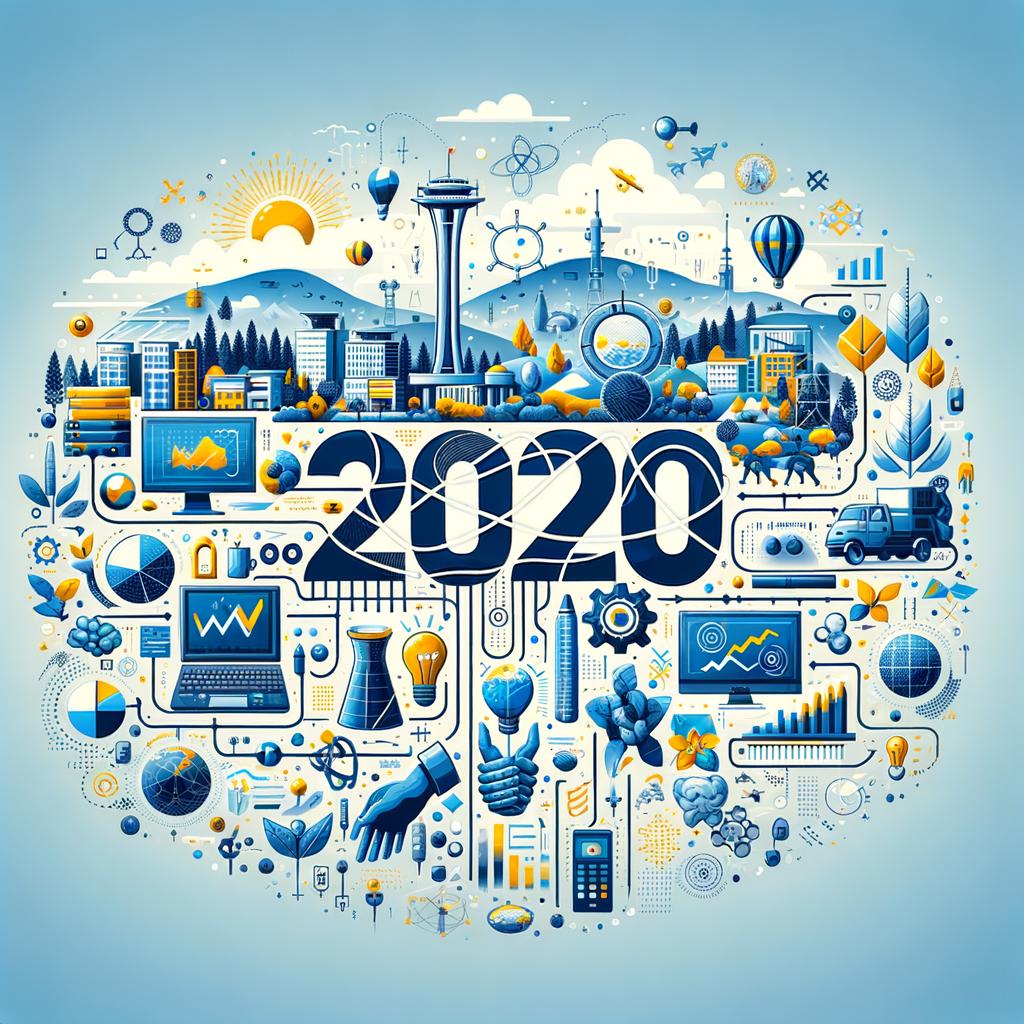In the heart of East Africa lies Rwanda, a nation that has transformed its narrative from one of despair to resilience and ambition. Launched in 2000, Rwanda’s Vision 2020 is not merely a government initiative; it is a compelling roadmap designed to guide the country toward sustainable development and economic prosperity. This visionary blueprint aims to propel Rwanda into the ranks of middle-income countries by embracing innovation, infrastructure development, and social unity. As the sun sets on the Vision 2020 timeline, it is essential to reflect on its achievements, challenges, and the lasting impact it has had on the Rwandan identity. In this article, we delve into the intricacies of Rwanda’s Vision 2020, examining how it has shaped policies, inspired progress, and laid the foundation for the nation’s future.
Embracing Technological Advancements for Sustainable Development
In a rapidly evolving world, Rwanda stands at the forefront of leveraging technology to foster sustainable development. By integrating digital innovation across multiple sectors, the nation is not only aiming to enhance economic growth but also to improve the quality of life for its citizens. Key strategies include:
- Digital Agriculture: Implementing smart farming through the use of drones and precision agriculture to increase productivity while minimizing environmental impact.
- Renewable Energy Initiatives: Harnessing solar and hydroelectric power to provide sustainable energy solutions, reducing reliance on fossil fuels.
- Healthcare Technology: Utilizing telemedicine and mobile health applications to expand healthcare access, especially in rural areas.
Furthermore, Rwanda’s commitment to education technology is evident in initiatives aimed at improving digital literacy among its population. By equipping schools with digital resources and promoting STEM education, the country is preparing a generation skilled in the tools of tomorrow. This approach is reflected in the following table, which highlights Rwanda’s investment areas in technology:
| Investment Area | Focus | Impact |
|---|---|---|
| ICT Infrastructure | Broadband expansion | Improved connectivity |
| Green Technologies | Sustainable practices | Reduced carbon footprint |
| FinTech Solutions | Mobile banking | Financial inclusion |

Strengthening Education Systems to Cultivate Human Capital
Rwanda’s commitment to education as a cornerstone of national development is evident in its strategic initiatives aimed at enhancing the quality and accessibility of learning opportunities. By prioritizing investments in educational infrastructure and teacher training, the nation is building a resilient framework that fosters knowledge and skills among its youth. This proactive approach encompasses:
- Curriculum Reform: A focus on modernizing the educational curriculum to meet global standards and local economic needs.
- Technology Integration: Leveraging digital tools to enhance learning experiences and prepare students for a technology-driven world.
- Inclusive Education: Ensuring that marginalized groups, including girls and children with disabilities, have equal access to education.
This multifaceted strategy not only aims to improve literacy rates but also to empower students as critical thinkers and innovative problem solvers. By fostering an environment where education is valued and supported, Rwanda is sowing the seeds for sustainable growth and development. Key components of this vision include:
| Key Initiative | Objectives |
|---|---|
| Technical Vocational Education and Training (TVET) | Equip students with practical skills for the job market. |
| Scholarship Programs | Support underprivileged students in pursuing higher education. |
| Community Awareness Campaigns | Promote the importance of education for all. |

Fostering Economic Resilience through Diversification Strategies
In Rwanda, economic diversification plays a pivotal role in enhancing resilience and ensuring sustainable growth. By shifting away from an over-dependence on agriculture, the country is embracing various sectors that can withstand global market fluctuations. This strategy involves:
- Promoting tourism: Leveraging natural beauty and unique wildlife to attract global visitors.
- Investing in technology: Encouraging tech startups and IT professionals to innovate and create jobs.
- Enhancing manufacturing: Developing local industries to reduce imports and boost exports.
Moreover, the government is actively fostering partnerships between private and public sectors to catalyze growth and innovation. Strategies are being implemented that include:
- Access to finance: Providing small and medium enterprises (SMEs) with financial support to encourage entrepreneurship.
- Skilled workforce development: Investing in education and training programs to equip individuals with necessary skills.
- Infrastructure improvement: Upgrading transport and communication networks to facilitate business operations.

Enhancing Environmental Sustainability for Long-Term Prosperity
To foster a sustainable environment while promoting economic growth, Rwanda’s Vision 2020 integrates innovative practices aimed at harmonizing nature and development. This national strategy emphasizes the importance of renewable energy sources, prioritizes sustainable agricultural initiatives, and encourages responsible land use management. Through a collaborative approach, community engagement plays a crucial role, empowering citizens to actively participate in eco-friendly practices. The government supports various initiatives, including:
- Reforestation projects to combat deforestation and enhance biodiversity.
- Waste management programs focusing on recycling and reducing plastic use.
- Community gardens to promote local food production and minimize carbon footprints.
Moreover, Rwanda acknowledges the significance of education in fostering environmental awareness among its population. Schools and local organizations work together to embed principles of sustainability into their curricula, inspiring future generations. An essential aspect of this educational approach is the incorporation of technology, allowing for innovative solutions to environmental challenges. The effectiveness of these initiatives can be visualized in the following table:
| Initiative | Impact | Year Implemented |
|---|---|---|
| Green Schools Program | Educates children on sustainability | 2016 |
| Agro-ecological Practices | Increases crop yield sustainably | 2018 |
| National Parks Restoration | Enhances tourism and biodiversity | 2015 |
Future Outlook
As we reflect on Rwanda’s Vision 2020, it becomes clear that this ambitious blueprint has paved the way for transformative change and a resilient future. Encompassing a diverse range of sectors—from education and healthcare to infrastructure and technology—this initiative has redefined the nation’s trajectory. While challenges remain, Rwanda stands as a testament to the power of strategic planning and unified vision.
The ongoing commitment to innovation, sustainability, and inclusivity serves as a reminder that development is not merely a destination, but a continuous journey. As the nation forges ahead, it invites the world to witness and participate in its evolution, positioning itself not just as a case study, but as a catalyst for progress.
In closing, Rwanda’s Vision 2020 is more than just a plan; it is a promise of perseverance and prosperity, illuminating a path that others may follow. With eyes firmly set on the horizon, Rwanda embarks on its next chapter—one that holds the potential to inspire and empower future generations towards a brighter, more equitable tomorrow.

